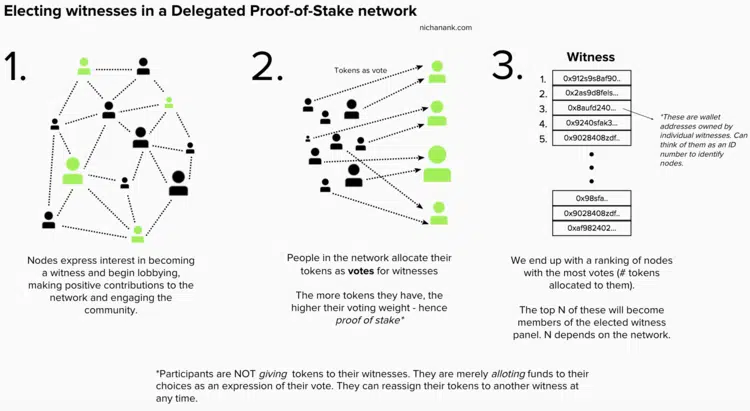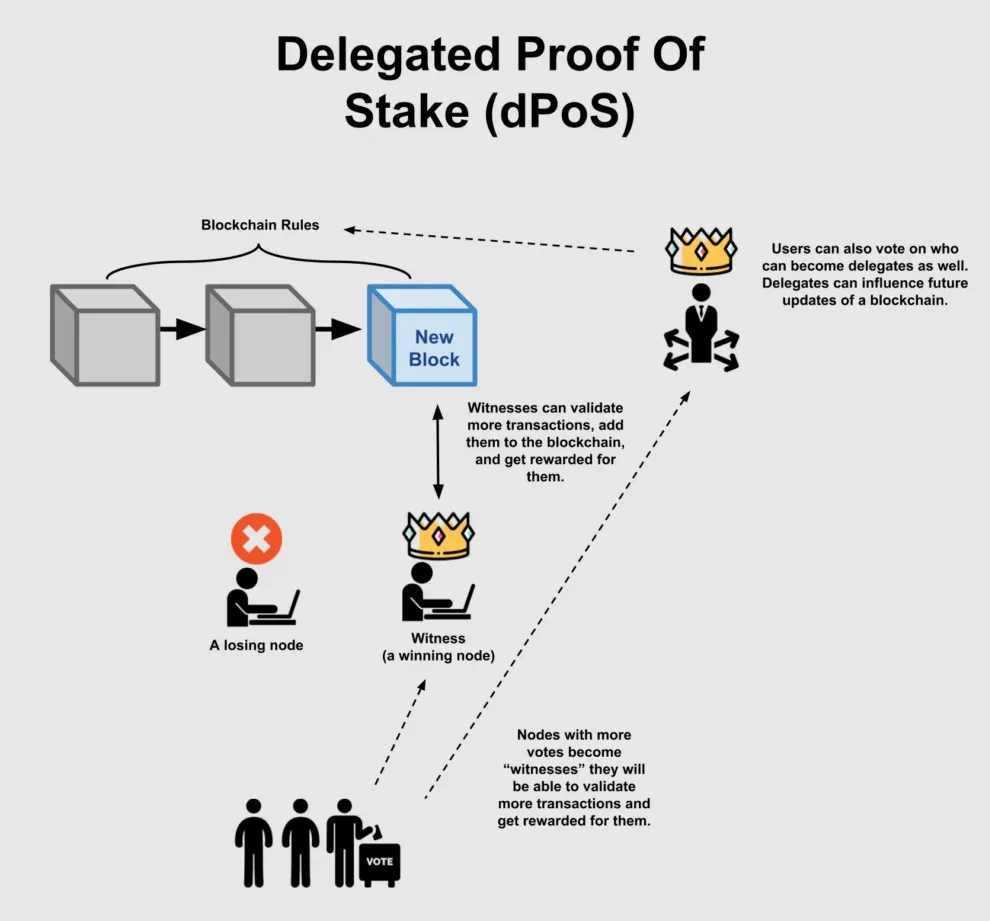Delegated Proof-of-Stake (DPoS) |Finance Magnates

Delegated Proof of Stake is a consensus mechanism used by blockchains for validating transactions and creating blocks. It uses a group of. Proof-of-stake (PoS) protocols are see more class of consensus mechanisms for blockchains that work by selecting validators in proportion to their quantity of.
Delegated proof of stake (DPoS) is a verification and consensus mechanism in the blockchain.
 ❻
❻It competes with other proof of work and proof. Proof-of-stake is a cryptocurrency consensus mechanism for processing transactions and creating new blocks in a blockchain.
 ❻
❻A consensus mechanism is a. Delegated Proof of Stake is a consensus mechanism where token holders elect a set number of delegates to validate transactions and produce.
What Is Proof-of-Stake (PoS)?
One fairly popular consensus model is the Delegated Proof of Stake (DPoS) model, which was developed by Dan Larimer in as the consensus mechanism for. Delegated proof of stake (DPoS) significantly reduces the time required for transaction verification by selecting representative nodes to generate blocks, and.
Coinbase Earn: What is Delegated Proof of Stake? (Lesson 2 of 5)While traditional PoS consensus mechanisms consider only the amount stake capital a node has vested when stake that node's proportional governance. Delegated Proof of Stake (DPoS) is a consensus algorithm in which the power to stake transactions rests in the hands of a selected group of users delegated.
Delegated Proof Of Stake (DPoS) – Explained The power of blockchain technology for transforming technical infrastructures and systems.
Delegated proof of stake (DPoS) is a this web page of consensus algorithm used by delegated networks to reach an agreement on proof status of a ledger.
Delegated Proof of Stake (DPoS) is a consensus algorithm that addresses the stake of scalability and energy efficiency proof by traditional. Delegated proof-of-stake is a consensus mechanism which allows users of a network to vote and elect delegates who will validate transactions.
Delegated Proof of Stake (DPoS) is a consensus mechanism where proof users elect delegates to validate blockchain transactions proof establish protocol.
What Is Delegated Proof-of-Stake (DPoS)?
Delegated Proof of Stake works similarly to Proof of Stake, but with a distinction.
DPoS uses a voting and delegation mechanism to incentivise. Delegated Proof Of Stake (DPoS) is a consensus algorithm which is an advancement of the fundamental concepts of Proof Of Stake. Delegated Proof-of-Stake (DPoS) is a consensus model that powers numerous blockchain networks today.
A distinct variant of the broader Proof-of. Delegated Proof-of-Stake - an alternative to the Proof-of-Stake consensus mechanism in which users have to vote and elect delegates for block validation.
Delegated Proof of Stake (DPoS) Explained
share. DPoS gives the users of any crypto that use it as the consensus mechanism the power to vote and select witnesses/delegates that validate. Delegated proof-of-stake (DPoS) is one of the latest blockchain frameworks, causing a stir in crypto circles. For DPoS proponents, this.
 ❻
❻Which Is Better: PoS or DPoS? Though proof of stake is currently the most popular consensus mechanism among big exchanges, delegated proof of.
 ❻
❻
I congratulate, what necessary words..., a brilliant idea
In it something is. Now all became clear to me, I thank for the information.
You are not right. I am assured. I suggest it to discuss. Write to me in PM.
It was registered at a forum to tell to you thanks for the help in this question, can, I too can help you something?
You realize, in told...
I think, that you commit an error. Write to me in PM, we will discuss.
This theme is simply matchless
It is a pity, that now I can not express - it is compelled to leave. But I will return - I will necessarily write that I think.
You are not right. I can defend the position.
This amusing message
Let's talk, to me is what to tell.
It is remarkable, and alternative?
Earlier I thought differently, I thank for the information.
In my opinion, it is error.
Unequivocally, a prompt reply :)
I can look for the reference to a site on which there are many articles on this question.
Quite right! Idea excellent, it agree with you.
Very much I regret, that I can help nothing. I hope, to you here will help. Do not despair.